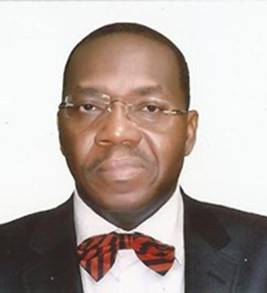Energy
Mixed reactions trail fixed tariff charge
OREDOLA ADEOLA
Mixed reactions have continued to trail the demand by the Federal government that the monthly fixed charges component of the electricity tariff collected from Nigerian consumers be removed.
Recall that, earlier, the Permanent Secretary of the Ministry of Power Godknows Igali had earlier reinstated the government’s position on this, recently while addressing State House correspondents after briefing President Muhammadu Buhari on the activities of the ministry. Reacting to the Tuesday’s resolution by the Senate urging the Nigerian Electricity Regulatory Commission (NERC) to put an end to the practice of the electricity fixed charges, Igali said the fixed charges are no longer acceptable,, even as he stated that the ministry was currently “tracking” power distribution companies to make them improve their networks as well as provide transformers and meters “because Nigerians are tired of estimated billing.”
He further said NERC Chairman, Sam Amadi, had earlier met with him to ask about measures that could be taken to address “genuine” concerns being raised by Nigerians on the issue.
He said his ministry was tracking the power distribution companies (DISCOs) to ensure that “what is needed at the distribution level is done.” Igali, however, said that his ministry would meet and discuss with the Senate to enlighten senators “a little bit more” on the process of the value chain of power supply.
“Electricity supply is now in the hands of mostly private sector. If it’s in the hands of the private sector, then, it means that the private sector people must bring copious investments into the sector. And if they must bring in investments, then it means that they must earn revenue to be able to bring in investment,” he said.
In his remarks, Buhari disclosed that his government had already identified the critical problems in the nation’s power sector and was taking appropriate actions to address them.
According to the president, the problems with the nation’s power sector are more with transmission than generation.
The president specifically stressed the need to secure power infrastructure across the country.
In what many analysts and watchers of the energy sector have condemned as betrayal of the people, the Nigeria Electricity Regulatory Commission (NERC) yesterday told the Senate that it cannot abolish the fixed charge. This declaration from Amadi has generated much heat as many who spoke to Hallmark are of the belief that the regulatory authority may have lost control of oversight and regulation.
Biodun Abereifa, a stakeholder stated that ”the charge is not proper, and an evidence that the government is not making efforts to protect consumers against the greed of the DISCOs”.
However , NERC Chairman, said the National Assembly had passed the Electric Power Sector Reform (EPSR) Act, which mandated the Commission to produce a tariff methodology for the electricity market.
He argued that removing the fixed charges would contradict the law the National Assembly made on tariff methodology.
Amadi spoke with reporters in Abuja, noting that tariff making could not be by executive fiat.
He said: “The National Assembly made the ESPR Act. And the Act said the Commission should produce a methodology. Tariff making is a process-based activity. It is not an executive fiat. The reason why the law created the regulator is to give confidence to the market; their decisions are procedural and the decisions are deliberately considered.
“Our decisions are in line with due process. Otherwise, the law should have left the sector under the control of Ministry of Power the normal way it was with the ministry. So it will issue an executive ruling. So NERC cannot wake up in the morning and say we have abolished this. That will undermine the law that the National Assembly made.
“Don’t forget that we were created by a clearly legislative-defined mandate. And one of the mandates is to create regulations that are done in a particular way. So we cannot come and say we have abolished fixed charge.
“We will always go through a process and the process is that before that Senate’s decision, we had commenced a process to remove the fixed charge in a way you understand it, then allowing recoveries to be made as you consume.
“Essentially, we are in line with the decision of the Senate. The Senate’s concern is the fact that people are paying for what they do not consume. And we are in line with the Senate; we are working with the Discos to remove that aspect of the pricing methodology. That is to make sure that people pay for what they consume and pay fair and reasonable charges determined through a process allowed by the law.
“We don’t think that abolishing a fee that is part of recovery is dangerous for the solvent of the Discos. But through a tariff review, the Discos can remove the fixed charge and find a way to recover those costs through the normal energy charge.”
Continuing, he said: “Communities that are placed on bulk billing should reject it and insist on individual metering. The commission is in the process of completing a public consultation on a proposal to capture the amount an unmetered customer can pay until he or she is metered. The proposal will also commit distribution companies to strict deadlines for metering of all their customers. In the interim, the commission has abolished connection of new customers without meters.”
Amadi said the commission monitors complaints reported to the Discos monthly, to ensure that Discos carry out their responsibilities.
He noted that NERC, as a result of the monitoring, recently penalised the Abuja Electricity Distribution Company for over billing customers and ordered it to refund the customers.
The chairman added that the company refunded about 32,000 customers, ranging between N5,000 and N15,000 per customer, adding up to over N50 million.



